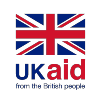Who would have thought that 2020 would be so confined to a virtual world? When COVID19 started spreading in Nepal, CLARISSA was just gearing up to launch in-country after successfully completing the ‘after action’ review workshop. We had completed recruitment and were looking forward to coming together and building our capacity as a team to deliver this ambitious project. Yet, in the meantime, on 24 March, the Government of Nepal announced the lockdown and staff were suggested to ‘work from home’.
Building our capacity virtually
Initially learning remotely was forced upon us. But as one of the core CLARISSA principles is adaptive management, with some adjustment, me and the rest of the Nepal team easily adapted to it. Even though it was tough and felt uneasy to reschedule and reshape the face-to-face capacity building trainings we had planned, we successfully did it virtually.
The trainings ranged from research ethics, data management to narrative life storytelling and the participatory action research (PAR) process. It was intense but insightful! Every day we had 4 hours in front of the screen (with ample amounts of breaks in between) and breakout rooms for discussions. To my surprise (and delight) the learning was very smooth and in-depth. Initially, there were confusions on how the action research team would be formed, how to get their real stories and the role the documenter would play in this. However, as the training on narrative story writing and PAR rolled out I started to understand and believe in the process.
The pros and cons
I found that the virtual learning process had both advantages and disadvantages. The trainings were organised with all the CLARISSA country time zones in mind (Bangladesh, Mynamar and Nepal) – so no-one had to wake up too early or stay late from work. While the new online setup definitely saved on training resources at times the quality of internet and electricity supply was challenging. The structure online showed us the importance of time – it allowed us to breakout and re-join punctually (something that does not happen often in person!)
Despite some of the challenges and worries we had, we successfully trained and equipped ourselves through virtually. What a great achievement to reflect! It really shows that possibilities have no boundaries.
Learning is an ongoing process instead of bringing everything to a halt, the online training and working from home enabled us to move forward during the pandemic. Thanks to various applications, the technology and facilitators for making this possible.
As human beings have unique characteristics of adapting to the new world and it seems the year 2020 is the year for learning, exploring and trying things differently.
—
Kriti Bhattarai, Documenter
